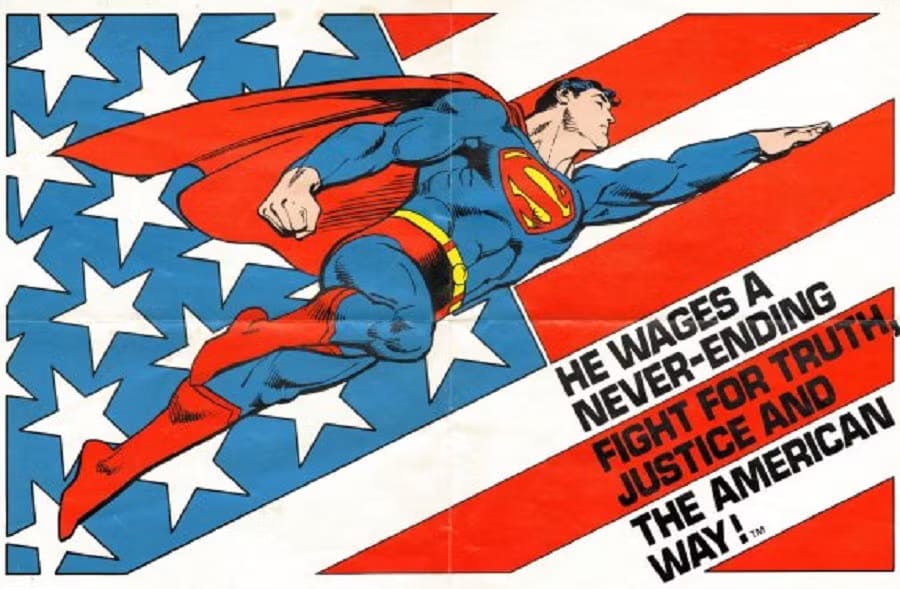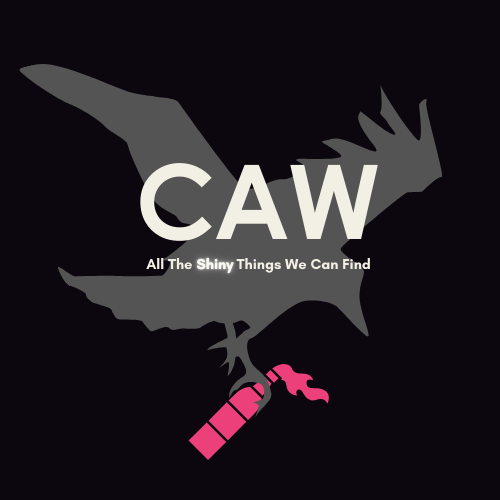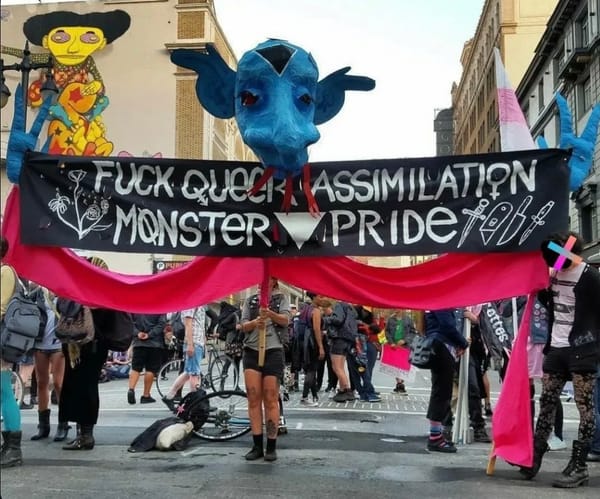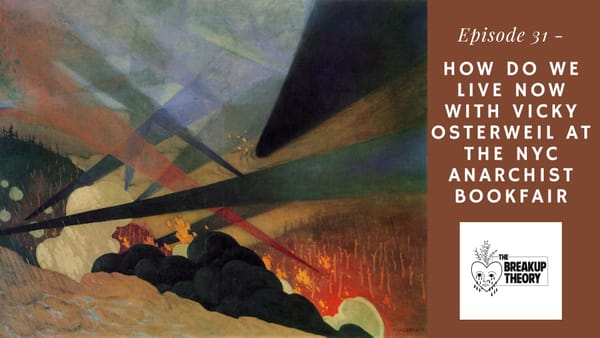The Übermensch at the End of America

Of the great symbols of the American Century, there are, to my mind, three that predominate: Mickey Mouse, Coca-Cola and Superman. All three with an undeniable and immediate iconicity, recognizable from silhouette, slogan, font or color palette alone, they represent an American mass-culture at ease with its benevolent corporate purveyors, the happy meeting place of art, marketing and industry.
All three offer up a sense of innocence and charm. Emerging from a culture of youth – easily dismissed as being kids stuff – they represent America as a young nation on the world stage, one of infinite energy, universal pleasure and happy smiles, symbols of a world of enjoyment not simply for the elite but for everyone to share.
(McDonalds, which might lay claim to a place among this pantheon, only really arrives later in the century and enters a cultural space already opened by the other three.)
Of all three, however, Superman is internally the most ambivalent. Mickey Mouse is the friendly symbol of protestant niceness, a middle-American cute and silly naivete that puts forward a "real America" of family values and work-ethic that counterbalances the bolshy Jewish Hollywood of sex, glamour and unionism.
Coca-Cola offers a sugary-sweet break from the work day, better than a cigarette because it has no real ill-effects (hell, it's caffeinated). Microdosing naughtiness with a nostalgic appeal to childhood joys, associated indelibly with Santa Claus, Coke is a democratization of access to simple luxury: cheap enough that everyone can afford it, uniform enough that it's the same everywhere, bold enough that you can't make anything like it in your home. Coke is a perfect symbol of the joys of industry, corporate power, conformity, of work and its counterpart, leisure.
Superman is a much more contradictory symbol. Raised on a farm in Smallville, Kansas, the character is a corn-fed middle-American straight out of Walt Disney's wet dreams, but Superman is also an immigrant, literally an alien fallen from space, drawn and written by a pair of Jewish children of immigrants. While his primary red and blue uniform and flapping cape evoke Old-Glory, his uniform and tights are fruity; effeminate. Up in the sky soaring like an airplane and standing for Truth, Justice and the American Way – as the slogan from his 1940s radio serial went – Superman's alter-ego Clark Kent is a nebbishy big-city journalist, constantly anxious about being outed. His parents Ma and Pa Kent are old-fashioned American entrepreneurs, running a farm and a general store, but Superman's love interest is Lois Lane, no housewife in waiting but rather a hardworking, fast-talking crack reporter: much more His Girl Friday than Gone With the Wind.
Most apposite for this essay is the fact that Superman is entirely invulnerable, invincible and almost all-powerful, as long as he is not confronted by his true origins, symbolized by a piece of the mineral Kryptonite, whose mere presence reduces him to a cringing, scared and helpless mortal. Kryptonite does not stand in for some particular part of his homeland or origin story, it's the whole thing: kryptonite is simply any shard of rock from his home planet.
So too was Superman's America, infinite in its capacities, indomitable in its wisdom and good will – as long as you don't confront it too directly with its past. It would spread democracy the world over, defeat fascism and build a system of international agreement and peace more cooperative than European domination. But assert the rights of the indigenous residents of its land, demand justice for the slaves who built it, or even question its motives – hold up one tiny piece of kryptonite – and discover Uncle Sam is just another cowardly slavering imperialist indistinguishable from his European counterparts.
Superman, moreso than Mickey or Coca-Cola, was everything for everyone, both melting pot and the steel that poured forth; universal symbol of American might, supremacy and openness; Anxious liberal hiding darker foundations. Superman's infinite strength, power and industry is matched by Clark Kent's devotion to truth, transparency and simplicity. He is an all-powerful übermensch but he fights for and lives among workaday stiffs and regular joes. Imperial might on behalf of homeland democracy.
His American Century is long over, and more recently too the US Republic. The men stoking America's funeral pyre hate Disney for being too woke, and now they hate Superman too. They can't stand the idea of an America for everyone, they want an America only for them. And so they made James Gunn's fun, campy Superman (2025) an object of the five minutes hate. Superman has gone woke.





